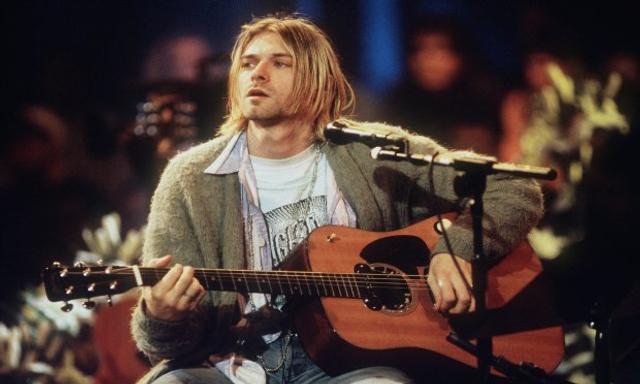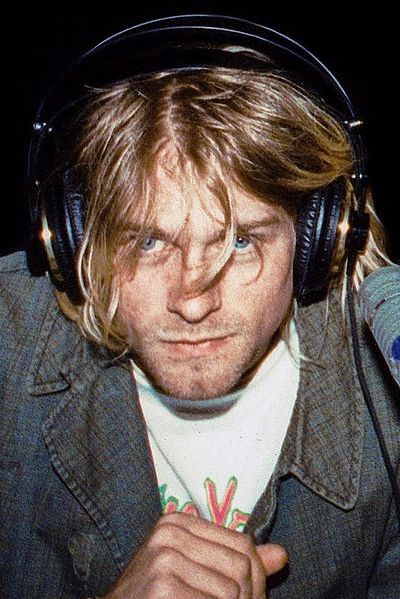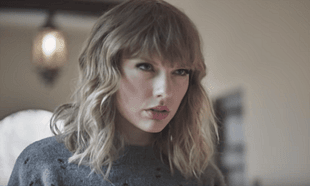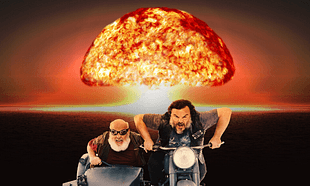Seattle, Washington: April 8th 1994
It's early in the morning when electrician Gary Smith arrives at the Lake Washington home Kurt Cobain shares with his wife Courtney Love. There is no answer at the front door but Smith doesn't expect to encounter anybody in the hour or so it will take to install the security lighting the Cobain's requested. Kurt is a late sleeper and Courtney, well, she's rarely around.
Smith heads towards the Cobain's garage to begin his work. He follows some wires from the roof to the room above the garage. Smith glances through the windows and spots something. What is that? His first reaction is that there is a mannequin lying prone on the floor. That wouldn't be unlike something you would find here, Kurt was especially fond of collecting strange items like this on the road.
Closer inspection, though, reveals a shotgun lying across the figure's chest. Nothing is moving. Is that blood? Gary Smith strains his eyes into focus and he realises what he is looking at. He has just discovered the body of the biggest rock star on the planet.
The 27-year-old hadn't been seen for six days. Just over a week prior Cobain had checked himself into the Exodus Recovery Centre outside of Los Angeles to seek treatment for his addiction to heroin at the behest of his band's management company Gold Mountain. He didn't last long. Three days later Kurt scaled a wall at the compound, boarded a flight to Seattle and was, for all intents and purposes, a missing person.
He puts his key in the front door of his Lake Washington house at 2am on April 2nd. He has a brief conversation with his live-in nanny Michael DeWitt who had been hired to help the couple take care of their 18-month old daughter Frances Bean who was, at the time, in Los Angeles with her mother who was promoting her band Hole's upcoming record 'Live Through This'.

The scene where Kurt Cobain took his own life on April 5th 1994
The next morning Kurt has breakfast and heads to the local sports store to buy shells for his new toy, a Remington M 11 20-gauge shotgun. His friend Dylan Carlson purchased this for him days prior because Kurt didn't have the necessary paperwork. He's wearing a crude disguise to avoid having to talk to anyone but his long coat and oversized sunglasses don't fool everyone. Some who recognised Cobain would later maintain that he looked "ill" and "out of it". He was both of those things.
The next couple of days are lost. No one really knows with any great deal of authority how Cobain spent his last few hours on earth. Then, sometime on the evening of April 5th, Cobain barricaded himself inside the small studio apartment above his garage, locking one door and propping a stool against the other. He writes a one page note detailing his unhappiness with his life but maintaining his love for his wife and child. It is addressed to 'Boddah', the name of his childhood imaginary friend. The note contains a phrase borrowed from Neil Young's 'Hey Hey My My', "It's better to burn out than to fade away." Young was so shaken by this that every subsequent performance of this song emphasises the "once you're gone, you can't come back" line.
Cobain sticks the pen through the paper and places it underneath an upturned flower pot. He smokes some cigarettes and drinks a can of root beer. Cobain then injects himself with three times the lethal dose of heroin and places his wares back inside his stash container, a 'Tom Moore' cigar box. He lays two towels on the ground, as well as his brown corduroy jacket. He takes out his wallet and slips his driver's licence out by an inch or so to remove any possible future doubt about who might have been in here when people come looking. He lies on the ground, on top of the towels, and reaches for his shotgun. Kurt is a small man and these guns are cumbersome. Kurt's is just less than 50 inches long so he props it up between his feet and rests it against his chest. The gun is pointed directly at his exposed chin. He pulls the trigger with his thumb.

What did Kurt Cobain mean to you?
To some he was just another dead rock star, the latest unlucky soul with a membership to the '27 Club', that macabre association whose only prerequisites are that you must be talented, tortured and dead by 27 years old. Jim Morrison, Janis Joplin and Jimi Hendrix were seen as cautionary tales to all those who felt their absence but Generation X had yet to experience such inevitable loss. This was it. Kurt Cobain was their unwilling spokesman.
- John Balfe, entertainment.ie music editor
Smells Like Teen Spirit is absolutely one of the best pop songs ever written. The reason why is the verses and the choruses, the way Kurt shouts the chorus and whispers the verse. It's almost a trick to pull people in. Smells Like Teen Spirit is a perfect pop song. Whether Kurt intended to do that, or it was a mistake, who knows.
- Duke Dumont, Grammy nominated musician
What did he leave behind? A slim but magnificent body of work that still resonates today. Two albums, Nevermind and In Utero that will be played for as long as kids dream of picking up an electric guitar and forming a rock band. Memories of a performer that reawakened our belief that rock music was at its most exciting, its most dangerous when it was at its most primal. And then there was the sensitivity at the heart of everything he wrote and sang about – without that, Nirvana could have been just another bunch of meathead guys playing pilfered riffs and loud guitars. On the the 20th anniversary of the death of Kurt Cobain, we rightly remember and pay tribute to the inestimable contribution he made to Rock music’s rich and proud history. But we also reflect on whether the price he paid for that contribution was too great, whether in giving so much, too much was taken in return.
- Paul Page, entertainment.ie and former Whipping Boy
Kurt Cobain didn't have any impact on my development as a DJ and a composer- I never bought any of their records when they were massive in the early 90's. I was just massive into dance music at the time. Don't get me wrong, I like them: the guy (Cobain) is a genius songwriter and when I hear their music, now, I think "Fuck, Nirvana were great, weren't they?" But they were never a band that I went to and I couldn't wait to go out and buy their new record. It was a taste thing, but I could still totally appreciate who they were and what they were about. For me, it wasn't like listening to The Clash; their music didn't have that impact on me. But I've massive respect for them as a band. Steve Albini's production is just incredible. But it was a taste thing; not something that I got overly- excited about, even though I can appreciate it. I can see why Cobain changed so many people's lives.
- David Holmes, DJ and composer
Dear Kurt, thanks for the music, thanks for the inspiration, thanks for your fleeting time here. You broke my and countless other tender teenage hearts when you decided enough was enough, for that I'll selfishly never really forgive you, you magnificent hypocrite you. Ultimately though, thank you. You showed me that rock n roll still had meaning after years of permed pop rock commercial nausea, not unlike the turgid bullshit we have to contend with these days. It's not your fault that they sucked you in and spat you in the face of all you poked fun at, turning you into a credible Axl Rose along the way, the swines. You may have been ridiculously deified, but that's how you made us all feel. Like we were worth something. If you could do it, we could. We had joy, we had fun, we had seasons in the sun. I guess your incredible, sardonic humour gets forgotten at times, you made us laugh, you made us sing, you made us really fuckin' miss you. Take care, kid.
- Tony Wright, VerseChorusVerse (whose debut album is out now!)
MORE:
Down Memory Lane: Nirvana played Sir Henry's in Cork this day 22 years ago
Obituary Birthday - A chronological journey through Nirvana's music catalogue


















































































